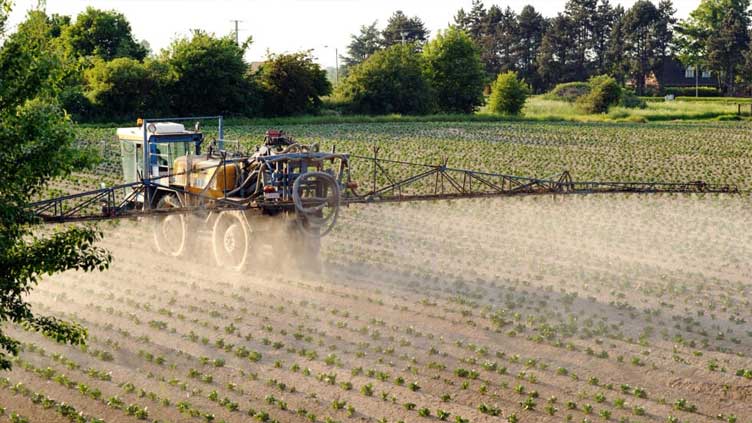Experts weed out flaws in France's revamped plan to cut pesticides

World
Experts weed out flaws in France’s revamped plan to cut pesticides
(AFP) - The backbone of France's broader agricultural shift towards agro-ecology, Ecophyto has consistently failed to meet its objective to halve pesticide use since it was first rolled out in 2008.
Farmers, faced with economic pressures and other industry challenges, have found the switch to alternative methods of pest control daunting – complaining there are not enough incentives or support.
Sixteen years on, the same problems persist.
New metrics
The government says its plan, unveiled on Monday, is different because it strives to eliminate the most toxic products while funnelling 250 million a year into equipment to protect crops and research into alternative products.
While the target to cut pesticide use by 50 percent before the end of the decade is intact, the path to getting there has changed.
France’s old system for measuring pesticides, which counted each dose equally regardless of the toxicity level, has been replaced with a European tool called the Harmonized Risk Indicator (HRI-1), which gives more weight to doses of dangerous pesticides.
Critics say the new evaluation method, which does not provide information on how many doses are used, might make it seem like farmers are using fewer pesticides than they are – and offer a false impression of progress.
“There is a clear desire to hide the truth,” warned French Greens MEP Benoît Biteau.
'Policy of inaction'
While France’s dominant farmer trade union, FNSEA, is reportedly satisfied with Ecophyto III, environmental defenders have lambasted the government for carrying on what they say is a 20-year policy of inaction.
“The deliberate exposure of farmers and their families and the general public to harmful substances will continue,” lamented an op-ed in Le Monde signed by hundreds of scientists and academic institutions.
They pointed to a “strong indication of a link between exposure to several pesticides and the development of prostate cancer, lymphoma and leukaemia”, which are on a government list of occupational diseases.
The most vulnerable people were farmers themselves, and those living near crop fields.
“The creation by farmers of the Phyto-Victimes Association (Agro-chemical Victims Association) in 2011 is proof that the farming world is also aware of the deterioration of health due to the massive use of pesticides,” the op-ed said.
Past tragedies
It also pointed to the mass poisoning of up to 90 percent of the people in Martinique and Guadeloupe with chlordecone, a pesticide used on banana plantations until 1993.
Such past tragedies, they argued, should instruct political leaders on the extent of their responsibilities.
“The inaction of health and political authorities at the time, despite the data available on the toxicity of chlordecone for humans, led to persistent pollution of the entire food chain,” they wrote.
While acknowledging the deep crisis being felt by the agricultural world, the piece warned that encouraging productivist agriculture based on the use of toxic chemicals would again risk the health of an entire population while failing to solve the problems faced by farmers.
Despite the criticism, the government is standing by its rebooted pesticide plan, saying it brings France closer to European standards and will therefore help to forge stronger EU collaboration.
Plans are afoot for a proposed law in July aimed at revising pesticide regulations.


